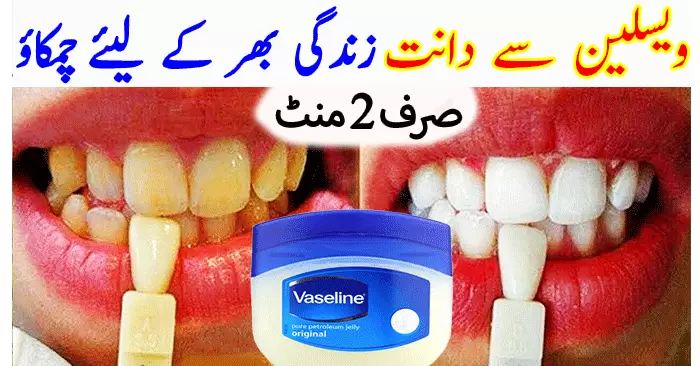
Do you find yourself wondering why your once pearly whites are now taking on a yellowish hue? You’re not alone. Many individuals experience teeth discoloration over time, and various factors contribute to this common concern.
In this article, we’ll explore the reasons behind yellow and stained teeth and delve into practical, easy-to-implement home remedies for teeth whitening.
How to Get Whiten Teeth with Home Remedies
Why Teeth Turn Yellow
Poor Oral Hygiene:
One of the primary reasons behind yellowing teeth is inadequate oral hygiene. When we neglect regular brushing and flossing, plaque builds up on the enamel, leading to stains and discoloration over time.
Dietary Habits:
The food and beverages we consume play a significant role in teeth discoloration. Dark-colored drinks like coffee, tea, and red wine, as well as certain foods like berries and tomato sauce, can contribute to staining.
Tobacco Use:
Smoking and the use of other tobacco products introduce harmful chemicals into the mouth, leading to stubborn stains. Nicotine and tar, in particular, can cause teeth to take on a yellowish or brownish tint.
Aging:
As we age, the outer layer of enamel on our teeth naturally wears away, revealing the yellowish dentin underneath. This is a normal part of the aging process, but it can be exacerbated by other factors.
Genetics:
Some people may be genetically predisposed to have teeth that are more prone to discoloration. If your parents or grandparents had yellow teeth, you may be more likely to experience the same issue.
Now that we’ve identified the culprits, let’s move on to practical and effective home remedies for teeth whitening.
Home Remedies for Teeth Whitening:
Baking Soda and Lemon Paste:
Create a paste using baking soda and lemon juice. Baking soda acts as a mild abrasive, while lemon’s natural acidity helps break down stains. Use this paste a few times a week, but be cautious as excessive use can erode enamel.
Strawberries and Baking Soda Mixture:
Mash strawberries and mix with baking soda to form a paste. Strawberries contain malic acid, a natural whitening agent. Brush your teeth with this mixture gently, and rinse thoroughly.
Coconut Oil Pulling:
Coconut oil pulling is an ancient practice known for its oral health benefits. Swish a tablespoon of coconut oil in your mouth for 15-20 minutes daily. This helps remove stains and promotes healthier gums.
Activated Charcoal:
Activated charcoal is renowned for its absorbent properties. Dip a damp toothbrush into powdered activated charcoal and brush your teeth for a few minutes. Rinse well, but use this method sparingly to avoid enamel damage.
Apple Cider Vinegar Rinse:
Apple cider vinegar has natural whitening properties. Dilute it with water and swish it around in your mouth for a few minutes before rinsing thoroughly. Be cautious, as its acidity may erode enamel if used excessively.
Orange Peel Rub:
Rubbing the inside of an orange peel on your teeth can help reduce stains due to the natural compounds present. Ensure to rinse thoroughly afterward.
Maintaining Your Brighter Smile:
In addition to these home remedies, adopting a few habits can help prevent further discoloration:
Maintain Consistent Oral Hygiene:
Brush your teeth at least twice a day, floss regularly, and use an antiseptic mouthwash to keep your mouth clean and healthy.
Moderate Stain-Causing Foods and Drinks:
While it’s not necessary to eliminate them entirely, try to moderate your consumption of coffee, tea, red wine, and other staining substances.
Quit Smoking:
If you smoke, quitting can significantly improve the color of your teeth and contribute to better overall oral health.
Regular Dental Check-ups:
Schedule regular dental check-ups and cleanings to address any potential issues early on and maintain good oral health.
Using these home remedies regularly and practicing good oral habits can bring back the brightness of your smile. Just be consistent, put in a bit of effort, and you’ll have a happier, whiter smile that makes you feel more confident and keeps your mouth healthy.
FAQs
1. FAQ: Can I use regular table salt for teeth whitening?
Answer: While salt is a mild abrasive, using it alone may not be as effective as other methods. However, mixing a small amount of salt with toothpaste can enhance its stain removal properties without causing excessive abrasion.
2. FAQ: Are over-the-counter whitening toothpaste products safe for everyday use?
Answer: Over-the-counter whitening toothpaste is generally safe for daily use. However, excessive use may lead to tooth sensitivity. It’s advisable to follow the recommended usage guidelines and consult your dentist if sensitivity persists.
3. FAQ: Does oil pulling with any oil provide the same benefits?
Answer: Different oils offer varied benefits. While coconut oil is popular for its antimicrobial properties, other oils like sesame or sunflower oil can also be effective. Choose an oil with proven oral health benefits and ensure to swish for the recommended time.
4. FAQ: How long does it take to see results with natural teeth whitening methods?
Answer: Natural teeth whitening methods may show gradual results. Consistency is key, and it may take a few weeks to notice a significant difference. Patience and regular use of these remedies will contribute to a brighter smile over time.
5. FAQ: Can I use activated charcoal frequently for teeth whitening?
Answer: While activated charcoal can be effective in removing stains, using it too often may lead to enamel erosion. Limit usage to once or twice a week to prevent potential damage to the protective enamel layer.
6. FAQ: Are there any dietary changes that can help prevent teeth stains?
Answer: Yes, incorporating crunchy fruits and vegetables like apples, carrots, and celery into your diet can help naturally clean teeth and prevent stains. These foods stimulate saliva production, which aids in maintaining oral health.
7. FAQ: Can I whiten my teeth at home if I have dental restorations like crowns or veneers?
Answer: Home whitening methods may not be as effective on dental restorations, as these materials do not respond to whitening agents in the same way as natural teeth. Consult your dentist for professional advice on maintaining consistent color across all dental work.






